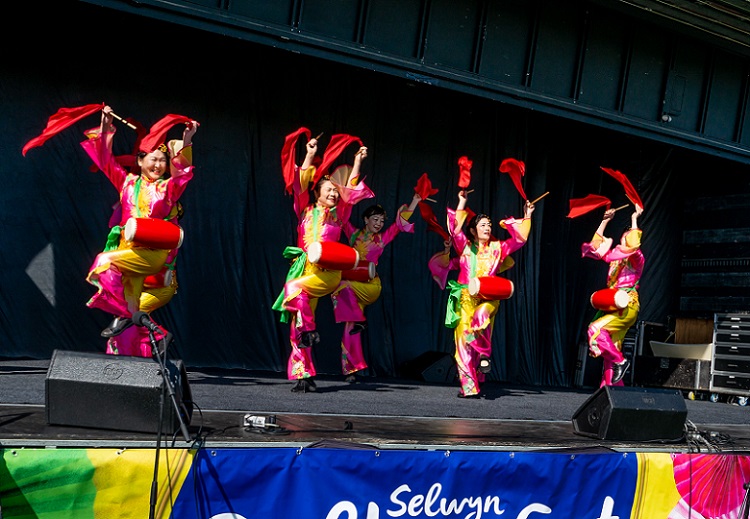Biggest crowd yet enjoy CultureFest
Content Archived on the Web
This content has not been altered or updated since it was archived. Please check our menus for latest news items.
Last modified: 29 Jul 2020 10:23am

A record crowd turned out to celebrate the biggest CultureFest yet at CultureFest 2019.
A crowd of more than 3500 took advantage of a warm sunny day to gather at Lincoln Domain to enjoy over five hours of music and dance stage performances, arts, crafts and food.
There was also a record number of participants with performers from more than 16 different countries and food stalls with food from over a dozen countries.
CultureFest was organised by the Selwyn District Council, Christchurch Multicultural Council and Lincoln University Students’ Association.
Multicultural Council President Dr Surinder Tandon, who helped found CultureFest, says it was heartening to see so many people turn out and the growing interest in embracing multiculturalism. He says there was some fear that groups might be put off by the 15 March terror attacks and may not come, fearing racism and abuse, but the attacks seem to have galvanised the community to embrace different cultures even more.
“It hasn’t dampened the spirit of the multicultural community to showcase and share their cultures. We had a lot more people attend this time which shows they also support diversity and want to learn more from other cultures, share cultures and have a better understanding through networking, entertainments and food. We could see a smile on every face and people were very happy to say hello to strangers. They want to know more about others, so it was rewarding to unite people of different cultures and faiths.”
It was special to have the festival opened with karakia and have three kapa haka groups from Te Taumutu Rūnanga, Te Kotahitanga and Rolleston College kapa haka performing.
“That was a highlight. It was very well received, particularly by the migrant community, because they also want to learn about Kiwiana and about Māori culture.